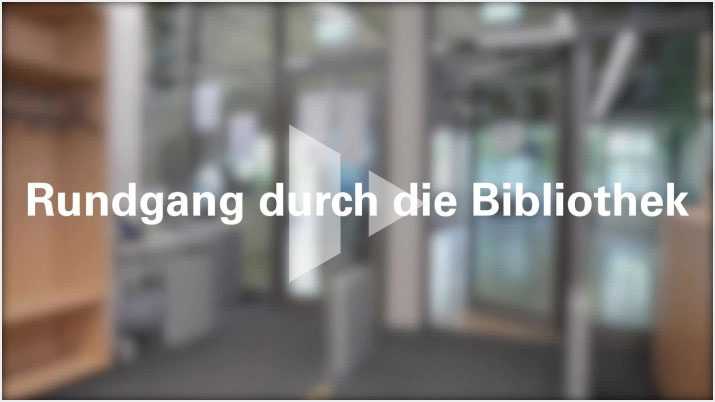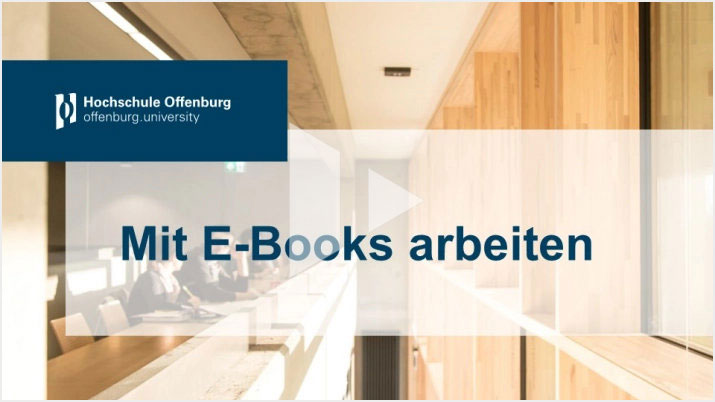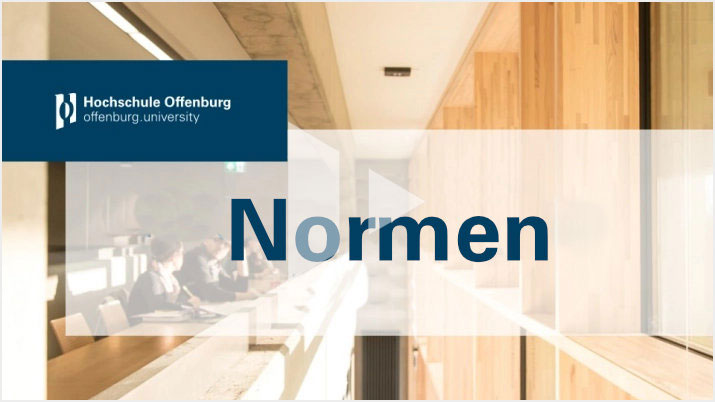About Online Studying
You can find the individual departments’ online offerings here:
B+W: <link https: www.hs-offenburg.de _top internal-link offering>Digitale Lehrangebote
EMI: <link _top internal-link offering>Digitale Lehrangebote
M+I: [coming soon]
M+V: <link https: www.hs-offenburg.de _top internal-link offering>Digitale Lehrangebote
In the overview of the <link internal-link internal link in current>course scedules, the attendance-based courses are marked with a room number. For attendance based courses follow the <link file:79633 download the>guidelines. All other courses will be offered online.
For online studying, you need to plan your work well and manage your time. Communication also requires initiative: While you would normally clarify questions in person, such as after a lecture, emails, video conferencing and chats are now more important than ever. Do stay in contact with your fellow students and teachers. If something is unclear, try to engage actively and constructively in online events. Make sure that you check your university emails regularly and stay informed about the general conditions and requirements of the individual events.
If there are any problems, contact us early so that we can find a solution together.
The most important rules of conduct also apply at the University: keeping a safe distance, hand hygiene, protective masks. This also means for us that online classes are the rule, face-to-face events the exception. The time spent at the University should be reduced as much as possible and attendance is recorded.
These measures are necessary to keep students and staff safe and the study process continuing. Please do your part to implement them!
The current regulations at the University can be found in these guidelines on COVID protective measures.
OSKAR is the University’s student ID card, but you also use it for the library, for copying, printing and scanning, and for paying in the cafeteria. You will be issued the card at the beginning of your studies. For each following semester you have to renew it once, on site in Offenburg or Gengenbach.
More about OSKAR: <link https: www.hs-offenburg.de en services oskar-card _top external-link-new-window internal link in current>hs-offenburg.de/en/services/oskar-card/
Door opener to your studies: the Campus User ID
Once you have enrolled, you will receive your campus user ID, the key to your studies at Hochschule Offenburg. It consists of your user name and a password.
All members of the University have a Campus User Account, which includes a university email account, a personal data directory, and access to the University’s various online services. Your access data (user name and initial password) will be sent to you upon enrollment. Campus IT Information (accessible in the internal network or via VPN)
If you have problems with your campus user account, please contact the Helpdesk at: digital-studieren@hs-offenburg.de, or use the form below for your inquiry.
The university email account is even more important this semester than usual – not only for emailing, but also to register for various services. Mails and calendars are accessible via webmail, but can also be accessed with a locally installed mail program or a corresponding smartphone app. Course-specific and university-wide information is distributed via mailing lists in which all students are automatically registered.
So, set up your account and check your mails regularly! Guide to setup your account (German language only) (accessible in the internal network or via VPN)
The following videos explain how to access university emails, calendars and contacts conveniently on your Android or iOS mobile devices.
You can find more information in the Wiki of the Campus IT (only from the university network or via VPN).
VPN (Virtual Private Network) provides you access to the internet and is the pre-requisite for virtually everything. VPN allows you to work from both at home and on campus. You can use the web-based VPN, but we definitely recommend installing the VPN Client.
In the learning management system Moodle, almost all courses have their own room, where you will find course information and materials.
Increasingly, Moodle is also used as a platform for assignments, but most importantly, for communication between professors/instructors and students.
Access to the rooms is usually restricted to university members. You can either log in with your campus user account or get an access key from the course instructor. Log in as soon as you have the data so that you can be sure to receive all information about the lecture.
The library offers several electronic services, including textbooks, databases and e-learning contents. To use these services, you must identify yourself as a member of the University: Either establish a connection to the university network with the VPN-Client (standard profile) or log in with your campus user data.
For support, visit the Homepage of the University Library
For interesting video trainings on topics from business, IT and technology, creativity, and others, go to: LinkedIn Learning
Library instructional videos:
Use of the Zoom video conferencing software is free with your university account. Many lectures are held as live zoom conferences. Image and sound are transmitted, screen contents are shared. Access is gained via a link that lecturers send to the course participants. The software may also be used for study groups or similar. Link to Zoom Instructions (German language only; accessible in the internal network or via VPN) Link to Netiquette
HSO Chat is the University’s internal chat for the exchange between lecturers and students, and among students. Anyone with a campus user account can log in. In addition to general information in the "General" channel, Rocket.Chat is also used for courses, or as a secure, internal university alternative to WhatsApp. It works in the web browser, but can also be installed on the computer or smartphone as an app. Brand-new this semester: The channel "Erstsemester" for the exchange among new students.
Chat Instructions (German language only; accessible in the internal network or via VPN)
Filr provides access from at home to your personal home storage drive. You can store data there, synchronize them with multiple devices and share them with other users. More on Filr on the CIT website (German language only; accessible in the internal network or via VPN)
A service for securely synchronizing and sharing data. All university users have 50 GB of storage space each, can store files, and create and share folders. Very handy for group work, for example, to access shared documents, but also for backing up data, e. g. during final exams. Access is possible via the web browser after logging in with the campus user ID; with the client it is even more convenient.
<link https: bwsyncandshare.kit.edu apps user_saml saml external-link-new-window internal link in current>Link bwSync&Share
<link https: hilfe.cit.hs-offenburg.de confluence citpublic anleitungsartikel bwsync-share external-link-new-window internal link in current>Link to Instructions (German language only)
For all members of the University there are multifunktion devices for printing, scanning and copying which are connected to the "Follow-me"-System. You can start your print job via VPN at home and print at the University's multifunction device with your OSKAR card. Alternatively you can login and print via bw-Lehrpool.
<link internal-link>Link to Instructions on the CIT website (German language only; accessible in the internal network or via VPN)




